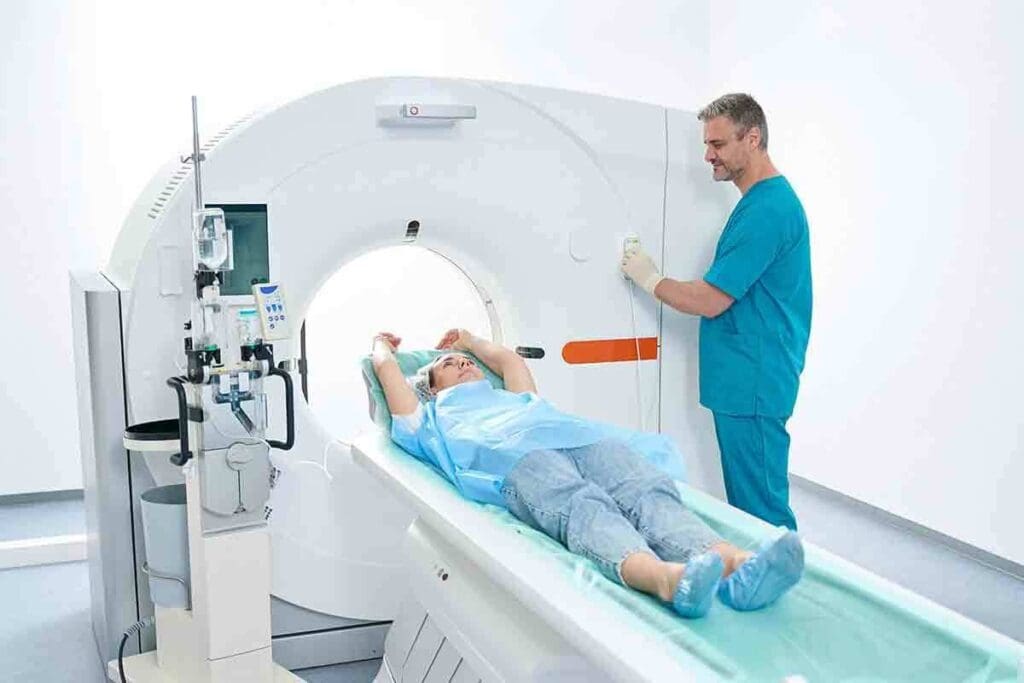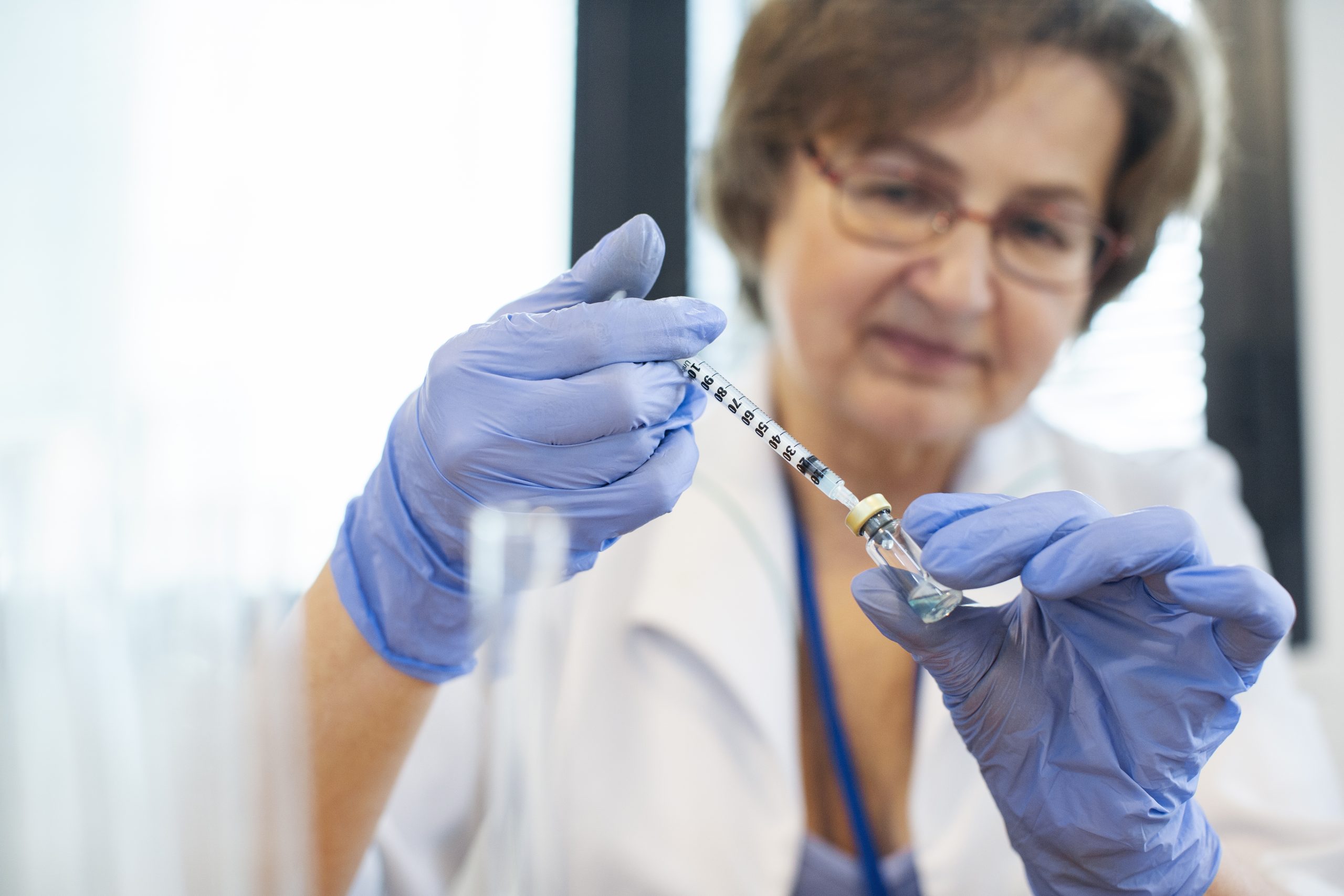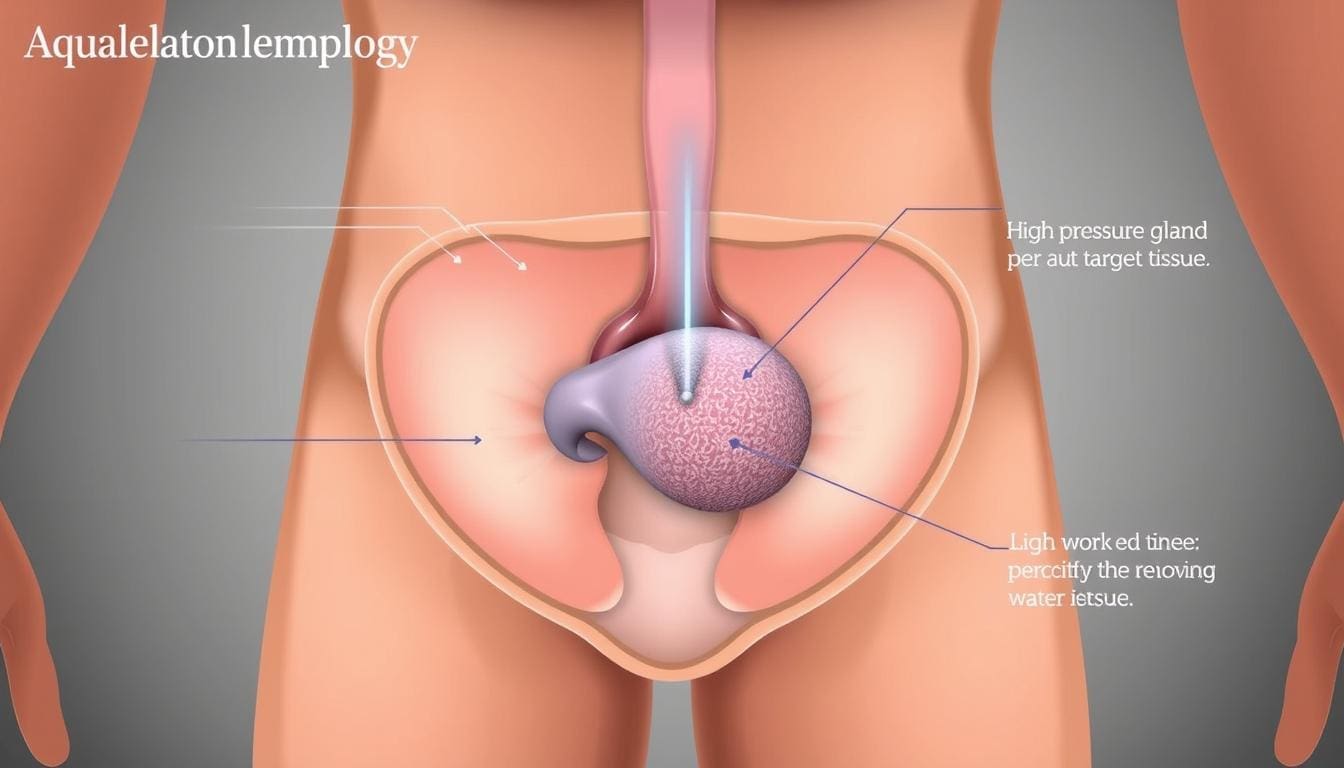Last Updated on November 27, 2025 by Bilal Hasdemir

At LivHospital, we know that accurate diagnosis and personalized care for heart disease start with advanced imaging. Myocardial perfusion imaging is a key tool to check blood flow to the heart muscle, even when stressed.
Knowing what a SPECT perfusion scan involves can help you as a patient. This test is vital for spotting problems with blood flow or checking if heart tissue is alive.
To get ready for the scan, you need to follow certain steps. We’ll show you how to prepare and what to expect during the test. This way, your myocardial perfusion imaging test will be safe and work well.
Key Takeaways
- Understand the purpose and benefits of myocardial perfusion imaging.
- Learn how to prepare for a SPECT perfusion scan.
- Discover what to expect during the procedure.
- Find out how to ensure a safe and effective MPI stress test.
- Get insights into the importance of myocardial perfusion imaging for cardiac health.
Understanding Myocardial Perfusion Imaging

Myocardial perfusion imaging is key for spotting and treating heart disease. It checks how well blood flows to the heart muscle. Doctors use it to find out if there’s any damage or if blood flow is low.
What is a Myocardial Perfusion Scan?
A myocardial perfusion scan, or nuclear stress test, uses tiny amounts of radioactive tracers. These tracers help make images of the heart. The scan shows how blood flows through the heart muscle at rest and when stressed.
Doctors compare these images to find out if some parts of the heart get too little blood. This could mean there’s heart disease.
The Role of Nuclear Medicine in Cardiac Diagnostics
Nuclear medicine is very important for heart tests, like MPI. It uses tiny amounts of radioactive tracers to see the heart’s structure and function. This helps doctors understand the heart’s blood flow and find damage.
Differences Between SPECT and PET Cardiac Imaging
SPECT and PET are two ways to do cardiac imaging in MPI. Both show how blood flows through the heart. But they work differently.
SPECT gives detailed images of blood flow. PET, on the other hand, offers even clearer images. It’s used for more complex cases or when extra detail is needed.
Why Your Doctor May Recommend a SPECT Perfusion Scan

A SPECT perfusion scan is a key test your doctor might suggest. It checks how well your heart works and how blood flows. This test gives doctors important info to help care for you.
Diagnosing Coronary Artery Disease
Doctors often recommend a SPECT perfusion scan to spot coronary artery disease (CAD). CAD happens when heart arteries get blocked by plaque. The scan looks at blood flow to the heart muscle, even when stressed. It finds problems like ischemia or infarction, helping doctors diagnose CAD right.
Evaluating Heart Attack Damage
After a heart attack, a myocardial perfusion scan shows how much heart muscle is damaged. Knowing this helps doctors plan the best treatment. They can see how big and severe the damage is to make a better plan.
Assessing Heart Function and Blood Flow
The heart perfusion study shows how the heart works and blood flows, at rest and under stress. It spots where blood flow is low or missing, showing blockages or damage. Doctors use this info to check the heart’s health and find any problems needing more attention.
Risk Assessment and Treatment Planning
SPECT perfusion scans are also key for figuring out risks and planning treatments. They help doctors see who’s at high risk for heart problems. The scan’s results also help decide on treatments like angioplasty or stenting to keep the heart healthy.
One Week Before: Initial Preparations for Your SPECT Perfusion Scan
Start getting ready for your SPECT perfusion scan about a week before. This time helps you prepare well for the test. You’ll need to focus on a few key things to make the process smooth.
Discussing Your Medical History with Your Healthcare Provider
Talk to your healthcare provider about your medical history. Share any heart issues, allergies, and current medications. They might adjust your prep based on this info. Some meds might need to stop or change doses.
Key points to discuss with your healthcare provider include:
- Any history of heart disease or related conditions
- Allergies, specially to medications or contrast dyes
- A list of your current medications, including dosages
- Any previous experiences with nuclear medicine tests
Arranging Transportation for Test Day
On test day, you might need a ride home. Arrange for a family member or friend to drive you. This ensures your safety and comfort after the test.
Insurance and Documentation Requirements
Know your insurance and what documents you need for the test. Check your benefits and any costs you might face. You might need a doctor’s referral or medical records.
It’s also a good idea to contact your insurance provider to clarify:
- The extent of your coverage for the SPECT perfusion scan
- Any pre-authorization requirements
- Potential out-of-pocket costs, including copays or deductibles
Pregnancy Considerations and Precautions
If you’re pregnant or think you might be, tell your healthcare provider. They’ll check if the test is safe for you. They’ll talk about any risks with you.
By preparing a week before, you’ll be ready for your SPECT perfusion scan. This helps ensure your test goes well and gives accurate results.
Medication Management Before Your MPI Test
Managing your medications is key to a successful MPI test. Knowing how to handle your meds before the test is important. It helps get accurate results.
Cardiac Medications That May Affect Results
Some heart medications can change your MPI test results. For example, beta-blockers, nitrates, and calcium channel blockers can affect heart rate and blood flow. It’s important to know how these meds work with the test.
According to Stanford Healthcare, talk to your doctor about your meds before the test. This helps figure out the best plan.
| Medication Type | Potential Effect on MPI Test | Recommended Action |
| Beta-blockers | May reduce heart rate, potentially affecting stress test results | Temporarily discontinue as advised by your doctor |
| Nitrates | Can dilate blood vessels, impacting blood flow assessment | Discuss possible discontinuation with your healthcare provider |
| Calcium Channel Blockers | May influence heart rate and blood pressure | Consult your doctor about temporary cessation |
When to Temporarily Discontinue Certain Medications
Deciding to stop some meds before your MPI test is a doctor’s call. Usually, meds that affect heart rate or blood flow need to be stopped. This ensures the test is accurate.
Always follow your doctor’s advice on meds to avoid problems or wrong test results.
Informing Your Doctor About All Supplements and Over-the-Counter Drugs
Tell your doctor about all meds, including supplements and over-the-counter drugs. Some supplements, like those with caffeine, can mess with test results.
Give your healthcare provider a full list of your meds and supplements. This keeps you safe and ensures the MPI test is accurate.
Dietary Guidelines for Myocardial Perfusion Stress Testing
To get accurate results from your myocardial perfusion stress test, follow certain dietary guidelines. These guidelines help prepare your body for the test. This ensures the results are as accurate as possible.
Foods and Beverages to Avoid 24-48 Hours Before
In the 24-48 hours before your test, avoid certain foods and drinks. Specifically, avoid any products with caffeine. Caffeine can change your heart rate and blood pressure, affecting the test results.
Don’t just avoid coffee, but also tea, chocolate, and caffeine in medications. Also, limit or avoid foods and drinks high in sugar and fat. They can also impact your heart rate and overall heart health.
Caffeine Restrictions and Their Importance
Caffeine is a stimulant that can increase your heart rate and blood pressure. Having caffeine before the test can give inaccurate results. It makes your heart work harder than usual. So, avoid caffeine for at least 24 hours before your test.
| Food/Drink | Caffeine Content | Action |
| Coffee (8 oz) | 95-200mg | Avoid |
| Tea (8 oz) | 25-48mg | Avoid |
| Chocolate (1 oz) | 1-15mg | Limit |
| Caffeine-containing medications | Varies | Avoid |
Fasting Requirements: Timing and Exceptions
Fasting is key to preparing for your myocardial perfusion stress test. You must fast for at least 6 hours before the test. This means no eating or drinking, except for water.
There might be exceptions based on your health needs or your doctor’s instructions. Always follow the fasting instructions given to you. Fasting ensures your body is ready for the test.
By following these dietary guidelines, you help make sure your myocardial perfusion stress test is accurate. This information is vital for understanding your heart health.
The Day Before Your SPECT Perfusion Scan
Getting ready for your SPECT perfusion scan is important the day before. It’s a time of excitement and maybe a bit of worry. But, by following these tips, you can make sure your test goes well.
Final Dietary Restrictions
Stick to the diet we told you about. Avoid caffeinated products 24 hours before your test. They can mess up the results. Also, don’t eat or drink anything except water for at least four hours before your appointment.
Here’s a quick guide on what to avoid:
| Category | Items to Avoid |
| Beverages | Coffee, tea, cola, energy drinks |
| Foods | Chocolate, certain medications containing caffeine |
What to Wear and Bring to Your Appointment
Think about what you’ll wear the day before. Wear comfortable, loose clothes without metal parts. You’ll also need to bring your medical records, insurance info, and a list of your medications.
Last-Minute Checklist for Test Preparation
Here’s a checklist to help you prepare:
- Confirm your appointment time and location.
- Arrange for someone to drive you home after the test.
- Review and follow the dietary restrictions.
- Gather necessary documents and items to bring.
By following these steps, you’ll be ready for your SPECT perfusion scan. If you have any questions or concerns, contact your healthcare provider.
The Day of the Procedure: What to Expect
Getting ready for your SPECT perfusion scan? Knowing what to expect can ease your worries. We’ll walk you through each step, making sure you’re comfortable and informed.
Registration and Initial Preparations
First, you’ll start with the registration process. Arrive a bit early to fill out any paperwork. Our team will help you get ready, which might include wearing a hospital gown and removing jewelry or metal items.
The Stress Component: Exercise vs. Pharmacological Stress
Your SPECT perfusion scan includes a stress test. You can either exercise on a treadmill or take a medication to mimic exercise. Our team will watch your heart rate and blood pressure closely during this part.
| Stress Method | Description | Typical Duration |
| Exercise Stress | Walking on a treadmill to increase heart rate | Typically 7-12 minutes |
| Pharmacological Stress | Medication administered to simulate exercise effects | Varies, usually a few minutes |
Radiotracer Injection Process
Next, a radiotracer is injected into your blood. This tracer helps us see your heart under stress. You might feel a tiny pinch, but it’s usually not uncomfortable.
The Imaging Process and Duration
Then, you’ll lie on a table that slides into a SPECT camera. Stay as quiet as possible for 15-20 minutes while we take the images. The whole thing, from start to finish, usually takes a few hours.
Knowing what happens during your SPECT perfusion scan can make you feel more at ease. If you have any questions or worries, just ask our staff. We’re here to help you every step of the way.
Post-Scan Care and Safety Considerations
After your SPECT perfusion scan, it’s key to follow certain care steps. This ensures your safety and comfort. Our team will help you with these steps to avoid risks and aid in your recovery.
Immediate Aftercare Instructions
Right after your scan, you’ll get specific care instructions. These might include:
- Drinking lots of water to flush out the radiotracer.
- Staying away from pregnant women and kids for a few hours.
- Going back to your usual activities unless your doctor says not to.
Radiation Safety and Exposure Minimization
The radiotracer in your scan emits a small amount of radiation. To reduce exposure:
- Drink plenty of water as advised by your healthcare team to get rid of the radiotracer.
- Stay away from others for a few hours after the scan.
When to Resume Normal Activities and Medications
You can usually go back to your normal activities and meds soon after the scan. But, it’s important to listen to your healthcare team about any meds you should stop or adjust.
Potential Side Effects and When to Seek Medical Attention
Side effects from a SPECT scan are rare, but here are a few things to watch out for:
- Mild reactions like dizziness or nausea during or after the test.
- Any signs of an allergic reaction to the radiotracer, like rash or itching.
If you notice any unusual symptoms or concerns, contact your healthcare provider right away for advice.
Conclusion: Navigating Your Heart Health Journey
Understanding your heart health journey means knowing about tools like the SPECT perfusion scan and myocardial perfusion imaging. These tests are key in finding and treating heart disease. They help doctors see how well your heart works and blood flows.
By learning and getting ready, you can help manage your heart health. Myocardial perfusion imaging is a big help. It spots problems early, so you can get the right treatment fast.
Keep learning and taking part in your health care as you go. Knowing about tests like the SPECT perfusion scan helps you make smart health choices. It’s all about being informed and involved in your heart health journey.
FAQ
What is a myocardial perfusion scan?
A myocardial perfusion scan, also known as a nuclear stress test, checks blood flow to the heart. It looks for signs of heart problems or damage.
What is the difference between SPECT and PET cardiac imaging?
SPECT and PET are imaging methods for the heart. SPECT is used for blood flow tests. PET is for more detailed heart checks. Your doctor will choose based on your needs.
Why do I need to stop taking certain medications before my MPI test?
Some heart medicines can change MPI test results. Your doctor might ask you to stop taking them. Tell your doctor about all your medicines.
What dietary restrictions should I follow before my myocardial perfusion stress test?
Avoid caffeine for 24-48 hours before the test. You might also need to fast. Your doctor will tell you what to eat.
What should I wear and bring to my SPECT perfusion scan appointment?
Wear comfy, loose clothes and no metal jewelry. Bring your insurance, ID, and a list of medicines and health history.
What happens during the radiotracer injection process?
A tiny amount of radioactive material is injected into your blood. It goes to the heart muscle, letting the imaging device see your heart.
How long does the SPECT perfusion scan imaging process take?
The imaging takes 15-30 minutes. But you might spend longer because of getting ready and checking in.
What are the possible side effects of a myocardial perfusion scan?
Side effects are rare and might include feeling dizzy or tired. Rarely, you could have an allergic reaction. If you feel bad, call your doctor.
How can I minimize radiation exposure after my SPECT perfusion scan?
Drink lots of water to get rid of the radioactive material. You can usually go back to normal activities unless your doctor says not to.
When can I resume normal activities and medications after my SPECT perfusion scan?
You can usually go back to normal unless your doctor says not to. They will tell you when it’s okay to start again.
What is a PET scan for cardiology?
A PET scan for cardiology uses a tiny bit of radioactive material to see the heart. It checks the heart’s health and function.
What is the difference between a cardiac PET scan and an echocardiogram?
A cardiac PET scan shows how the heart works and its blood flow. An echocardiogram looks at the heart’s structure and function. They help in different ways, depending on what your doctor needs to know.
References
- Einstein, A. J., Pascual, T. N., Mercuri, M., Karthikeyan, G., Vitola, J. V., Mahmarian, J. J., Better, N., Bouyoucef, S. E., He, Z., Vitola, J. V., Allam, A. H., Flotats, A., Jerome, S., Kaufmann, P. A., Keng, F. Y., Lele, V., Luxenburg, O., Mahmarian, J. J., Alexánderson, E., … Shaw, L. J. (2019). Current worldwide nuclear cardiology practices and radiation exposure: Results from the 65 country IAEA Nuclear Cardiology Protocols Cross-Sectional Study (INCAPS). European Heart Journal, *40*(15), 1210–1218. https://pubmed.ncbi.nlm.nih.gov/30358866/






